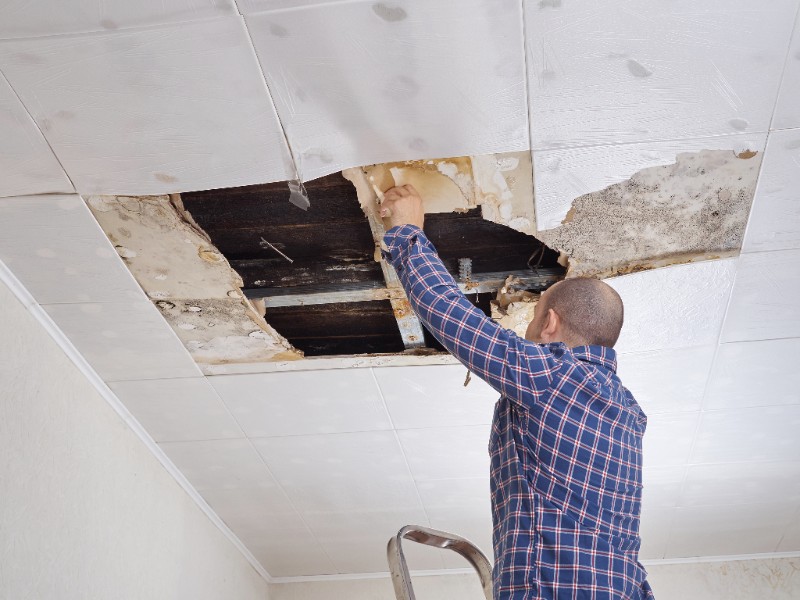
The Scenario
A landlord who is currently letting out one of their flats has recently had news that the tenants that live above the flat have left the bath running and flooded their property which has resulted in a soggy ceiling. The question is, who pays the insurance excess?
The Outcome
The first question to answer is “who’s to blame?” and in this situation the obvious answer would be the tenants from upstairs who left the tap running, but maybe there is more to the story. It is the responsibility of the landlord to ensure that the facilities within the living space are safe and if a problem has been reported such a leaking tap, it is the landlord’s responsibility to fix this within a specific time frame. For more information on the responsibilities of the Landlord take a look at the Landlord and Tenant Act 1985.
One of the leading causes of damage to a rental property is water, whether that is due to leaks, faulty appliances such as washing machines or damage from the rain, it can cause ongoing damage which can be expensive to repair.
This is one of many reasons that tenants and landlords take out insurance, in this scenario the tenant has several options;
- If you are protected under an insurance scheme that coves the whole building you can then claim on the neighbours insurance
- If this is not the case, you will need to claim on your own tenants insurance
The complexity in the scenario is dependent on what exactly is damaged and the risk that goes alongside this. If the ceiling is damaged so much that there is a risk to the structure this will then fall under Section 11 of the “Landlord and Tenant Act” which would result in the landlord having the pay the insurance excess.
For many landlord’s this will not be the outcome that they want as the damage was no fault of their own, or their carefully selected tenants, but the positive outcome of this is that their insurance provider will work harder to chase the funds required to handle the repairs.
It is important to understand that the landlord’s insurance will not cover the possessions of the tenants, they will need to have their own contents cover to protected in these kinds of scenarios. Every insurance policy will differ on what is protected in different circumstances, always read through your agreement thoroughly.
Speak to one of our specialists today to make sure you have a landlord’s policy or contents policy that will protect you for this scenario!


